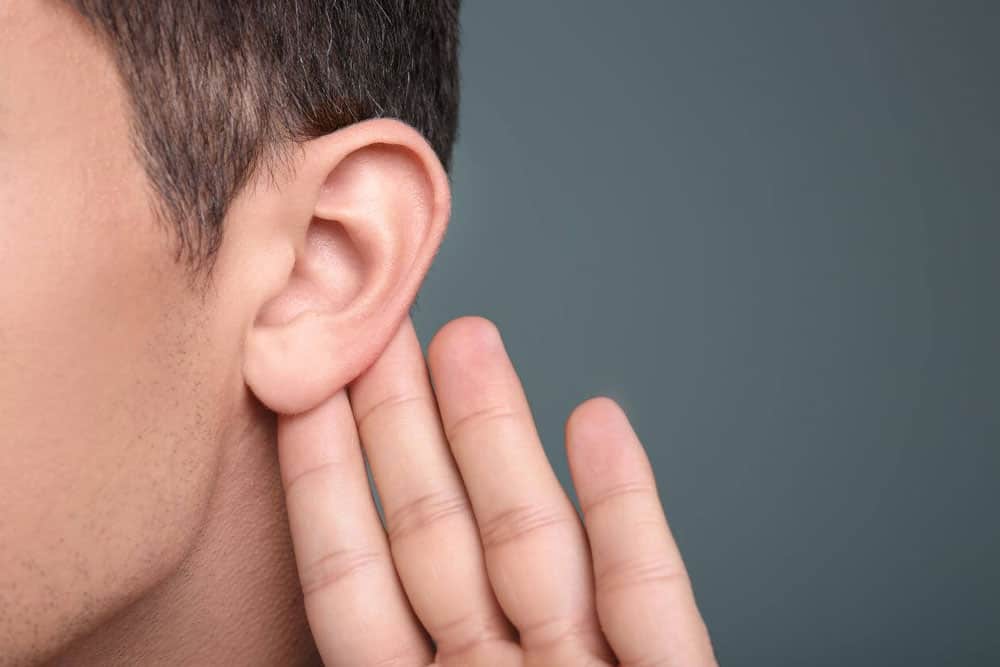Blog
Blog
What you should know about hidden hearing loss

Do you struggle to hear people speak when you’re in a noisy environment, but you have no trouble passing a standard hearing test? If so, you may have what’s known as hidden hearing loss. Here’s an overview of this under-diagnosed condition.
What is hidden hearing loss?
Hidden hearing loss refers to a type of hearing impairment that can’t be detected by a standard hearing test. Since typical hearing loss is caused by damage to either the auditory nerve or the hair cells in the inner ear known as cilia, a standard hearing test is designed to measure the functioning of these parts of the ear. For someone with hidden hearing loss, however, the problem isn’t with these parts but rather the connections between them.
When sound waves enter the ear, they cause the cilia in the inner ear to move. These hair cells register the vibrations and transform them into signals that are sent to the auditory nerve and onward to the brain where sound is perceived. The connections between the hair and nerve cells are called synapses. If some of these connections are lost, as is the case with hidden hearing loss, the brain doesn’t receive enough information from the ear to properly interpret what’s being heard.
What are the signs of hidden hearing loss?
If a person has hidden hearing loss, it typically won’t affect their ability to hear quiet sounds. However, they’ll struggle to pick out these sounds when they’re in places with a significant amount of background noise such as at a busy restaurant or large social event. Here are some other common signs of this condition to watch for:
- Hearing others incorrectly and struggling to follow conversations in noisy places
- Feeling easily distracted or unable to focus in noisy environments
- Preferring to have conversations in quiet settings and with small groups of people
- Being convinced of having hearing loss even after passing a hearing test
Additionally, someone who has hidden hearing loss may also experience tinnitus and/or hypersensitivity to sound. It should be noted that hidden hearing loss is often mistaken for attention deficit hyperactivity disorder (ADHD) or central auditory processing disorder. This is why it’s important to clearly explain your symptoms and when you experience them during a consultation with an audiologist.
What causes hidden hearing loss?
Similar to hearing loss caused by damage to the cilia or auditory nerve, hidden hearing loss is often the result of frequent or prolonged exposure to loud noises. If someone has hidden hearing loss, however, this exposure will have destroyed some of the synapses between the hair and nerve cells while leaving these structures intact. This is why the condition goes undetected by a standard hearing test.
In addition, researchers have found that long-term exposure to low-level noise pollution may also cause hidden hearing loss. It’s also normal for synapses to weaken with age, thereby hindering the transmission of information between nerves. Finally, hidden hearing loss may be linked to certain autoimmune disorders, such as Guillain-Barré syndrome, that attack the insulating layer around nerves referred to as myelin.
What are the options for treatment?
At the moment, there’s no cure for hidden hearing loss. However, there are a variety of strategies and technologies that can be used to mitigate symptoms. Following a consultation, an audiologist or other hearing-care professional may recommend:
- Wear hearing aids. In particular, modern devices with speech-in-noise settings can greatly benefit someone with mild hidden hearing loss. Hearing aids with this feature focus on sounds in front of you while blocking out those beside and behind you.
- Use an assistive listening device. Digitally-modulated (DM) systems, for example, use radio waves to help you better understand speech when you’re in a noisy environment. Alternatively, you can use a mobile app to convert live conversations into text.
- Adapt your behaviour. As much as possible, try to socialize in relatively quiet settings with small groups of people. If you go to a busy restaurant, for example, ask to be seated at a booth to help block out ambient noise.
It’s also important to take steps to prevent further damage to the synapses and structures in your ear. This includes wearing earplugs to concerts and other loud events. You should also invest in noise-cancelling headphones so you don’t have to turn up the volume to block out background noise.
Consult an audiologist in Alberta today
If you suspect you or your child has hidden hearing loss, don’t hesitate to reach out to the team at Soundwave Hearing Care. Our audiologists and hearing aid practitioners are committed to providing individualized care to suit your symptoms, needs and lifestyle. For more information about our services, or to schedule an appointment in your area, contact us today. Our hearing clinics are conveniently located in Calgary, Grande Prairie, High River and Lethbridge.
All the blogs are reviewed and edited by our clinic's lead audiologist, Dr. Anne Wooliams. Dr. Woolliams is an experienced audiologist specialized in pediatric audiology, auditory processing, and tinnitus/sound sensitivity therapy. She is dedicated to providing top-notch hearing care and helping her clients improve their language and communication abilities. Dr. Woolliams' expertise in literature and linguistics, combined with her passion for helping people improve their language and communication, make her an incredibly valuable asset in the field of audiology. Learn more about Dr. Woolliams.
